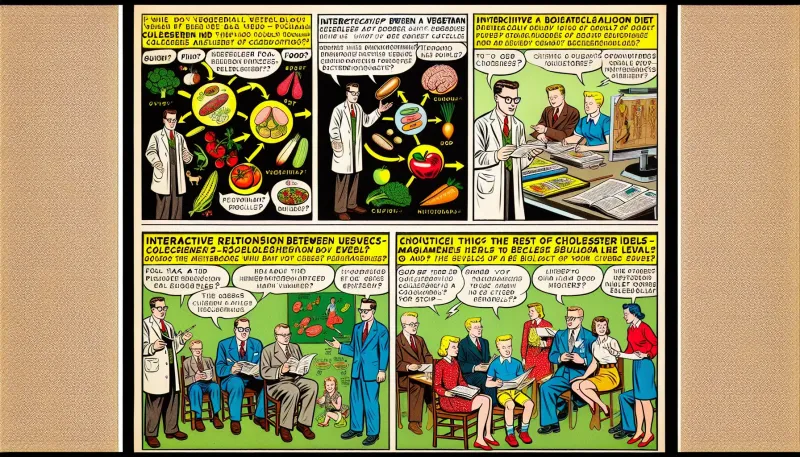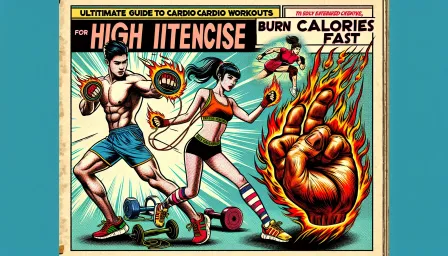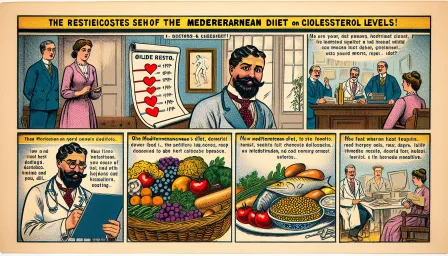How a Vegetarian Diet and Cholesterol Levels Interact: A Comprehensive Guide

Explore how a vegetarian diet impacts cholesterol levels. Understand the benefits, challenges, and science behind a plant-based diet for heart health.
A well-balanced vegetarian diet can have a profound effect on cholesterol levels. If you’re considering altering your eating habits to a plant-based regimen, or if you're just looking to manage your cholesterol, this comprehensive guide will provide you with all the necessary information.
Introduction
Cholesterol is a fatty substance found in blood, vital for several bodily functions including the production of hormones and vitamin D. While our body needs some cholesterol, too much of it—particularly low-density lipoprotein (LDL)—can lead to serious health problems like heart disease. This is where a vegetarian diet comes into play. Studies show that vegetarian diets are typically lower in saturated fats and cholesterol, which may help in managing cholesterol levels more effectively.
Understanding Cholesterol
Types of Cholesterol
Cholesterol is transported in the blood by lipoproteins, and it comes in two main types:
- Low-density lipoprotein (LDL): Often referred to as ‘bad’ cholesterol, high levels of LDL can result in plaque buildup in arteries, leading to cardiovascular diseases.
- High-density lipoprotein (HDL): Known as ‘good’ cholesterol, HDL helps to remove LDL cholesterol from the arteries, thereby reducing the risk of heart disease.
Cholesterol Levels
Understanding your cholesterol levels is crucial for maintaining heart health. Ideal cholesterol levels are:
- Total cholesterol: Less than 200 mg/dL
- LDL cholesterol: Less than 100 mg/dL
- HDL cholesterol: 60 mg/dL or higher
The Impact of a Vegetarian Diet on Cholesterol Levels
Reduced LDL Cholesterol
One of the primary benefits of a vegetarian diet is its potential to lower LDL cholesterol. Plant-based foods generally contain little to no cholesterol. Instead, they are rich in dietary fiber, which helps in reducing LDL levels. Soluble fiber found in foods like oats, beans, and certain fruits binds with cholesterol particles in the digestive system, preventing them from entering the bloodstream.
Increased HDL Cholesterol
Some vegetarian diets can also help increase HDL cholesterol. For example, incorporating foods like nuts, seeds, and olive oil—rich in omega-3 fatty acids—can promote higher levels of good cholesterol.
Aiding Weight Management
Vegetarian diets are often lower in calories, potentially aiding in weight management. Excess body weight has been associated with higher LDL cholesterol levels. By maintaining a healthy weight through a balanced vegetarian diet, you can keep your cholesterol in check.
Key Nutrients in a Vegetarian Diet That Affect Cholesterol
Fiber
As mentioned earlier, fiber, particularly soluble fiber, plays a significant role in lowering cholesterol. Foods high in fiber include legumes, vegetables, whole grains, and fruits.
Plant Sterols and Stanols
These compounds are found in small amounts in many plant foods and have been shown to help lower cholesterol. Incorporating foods fortified with plant sterols and stanols, such as certain margarines and orange juices, can be beneficial.
Antioxidants
Vegetarian diets are rich in antioxidants found in fruits, vegetables, nuts, and seeds. Antioxidants help reduce inflammation and prevent the oxidation of LDL cholesterol, making it less likely to form plaques in arteries.
Challenges and Considerations
Ensuring Nutritional Adequacy
While a vegetarian diet has many benefits, it’s important to ensure that it is nutritionally balanced. Pay attention to potential deficiencies in nutrients commonly obtained from animal products, such as Vitamin B12, Iron, and Omega-3 fatty acids. Supplements or fortified foods can help address these gaps.
Avoiding Processed Foods
Not all vegetarian foods are healthy. Processed vegetarian foods can be high in unhealthy fats, salt, and sugar. Opt for whole and minimally processed foods to maximize the health benefits.
Practical Tips for Lowering Cholesterol with a Vegetarian Diet
Choose Whole Foods
Emphasize whole grains, fresh fruits, vegetables, nuts, seeds, and legumes. These foods are naturally nutrient-dense and low in unhealthy fats.
Incorporate Healthy Fats
Include sources of healthy fats like avocados, nuts, seeds, and olive oil in your diet. Avoid trans fats and limit saturated fats, which can raise cholesterol levels.
Stay Active
Combine your vegetarian diet with regular physical activity. Exercise helps raise HDL cholesterol and lower LDL cholesterol.
Conclusion
A vegetarian diet can be a powerful tool in managing cholesterol levels due to its low levels of saturated fats and cholesterol, and its high fiber content. With mindful planning and a focus on whole, nutrient-rich foods, you can leverage the benefits of a vegetarian diet to maintain healthy cholesterol levels and improve overall heart health.



























